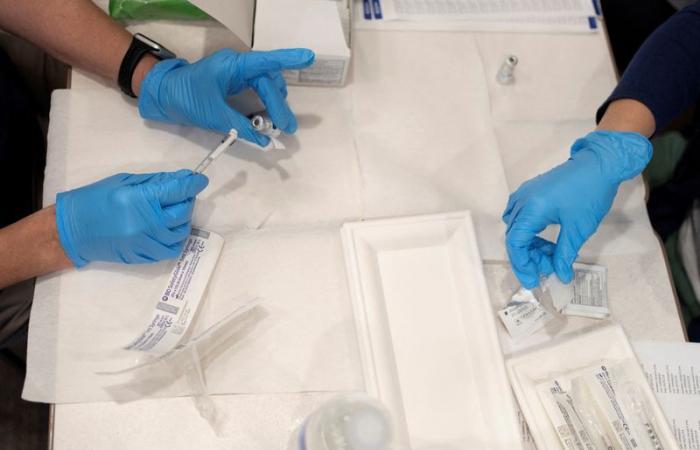Authorities in the Democratic Republic of Congo have approved the use of two smallpox vaccines to try to deal with a surge in cases and the spread of a dangerous new strain in the country.
Since the start of last year, Congo has recorded 20,000 cases and more than 1,000 deaths from smallpox, mainly among children.
The disease is a viral infection that spreads through close contact, causing flu-like symptoms and pus-filled lesions. Most cases are mild, but the disease can be fatal.
This week, the World Health Organization (WHO) and scientists warned of the spread of a new, deadlier strain in Congo’s South Kivu province.
The regulator has granted emergency use authorization for Bavarian Nordic’s vaccine, Jynneos, and for LC16, made by KM Biologics, according to documents and sources involved in the process.
Congo, one of the world’s poorest countries, had the first human case of smallpox in 1970, but has never had access to vaccines or treatments to combat the disease outside of clinical trials.
Both tools were widely available in European countries and the United States in 2022, when an outbreak of a less severe strain of smallpox spread globally.
During the last outbreak in Congo, national and international regulatory barriers, lack of funding, competing epidemics and stigma hampered the response.
Sania Nishtar, chief executive of Gavi, the Vaccine Alliance, told Reuters last week that her organization was prepared to use COVID-19 era protocols to facilitate vaccine donations from the United States and of Japan, once approval is obtained. A Bavarian Nordic spokesperson confirmed the approval in Congo on Wednesday.
Although Congolese authorities have approved the vaccines, Gavi, which finances the purchase of vaccines for low-income countries that are unable to do so on their own, cannot purchase them without them being “prequalified” by the World Health Organization, which constitutes a form of approval.
In the absence of approval, Gavi is dependent on vaccine donations.
A WHO spokesperson said the agency was working with vaccine manufacturers on an approval process. He urged countries to proceed with their own approvals and provide WHO with more data to move the process forward.
Other challenges to combating the epidemic in Congo include the stigmatization of the disease, which is spread through close contact, including sexual contact.
Funding is also a problem, Cris Kacita, who runs national-level mpox operations in Congo, told Reuters.
According to him, 84 million dollars are needed to intervene in the most threatened provinces, but only 8 million have been collected. (Reporting by Jennifer Rigby and Sonia Rolley; Writing by Barbara Lewis)






